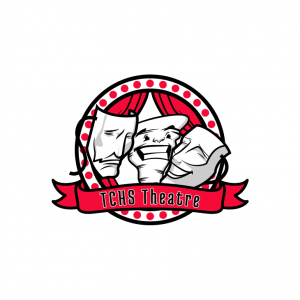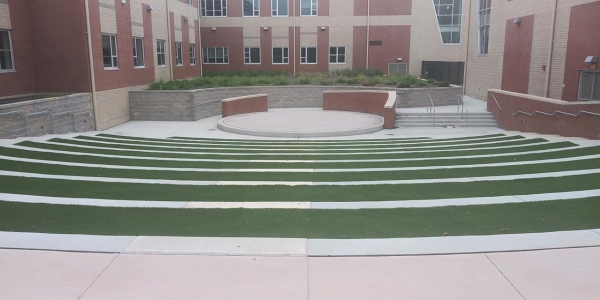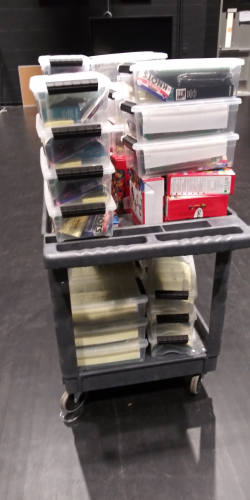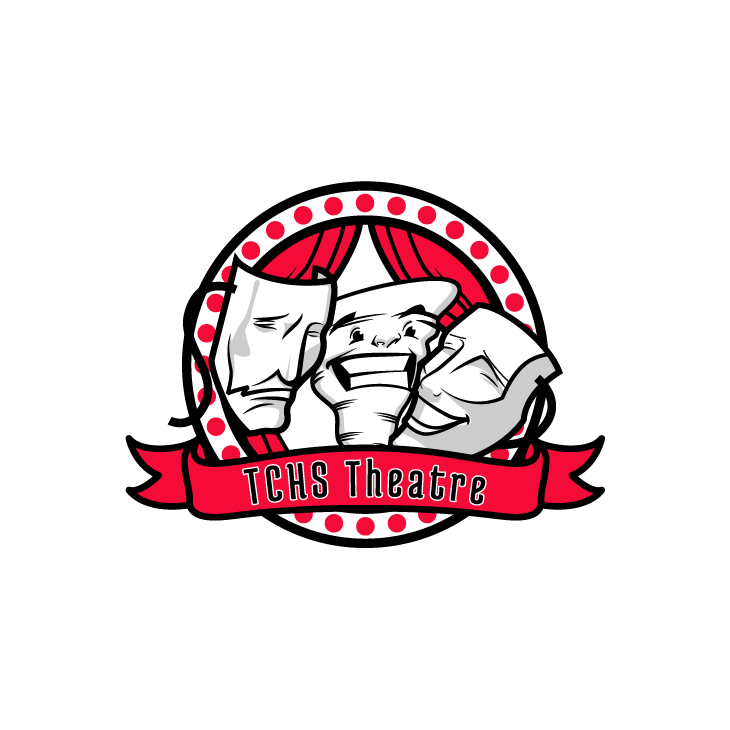 When I first joined the staff of Trenton Central High School in Trenton, New Jersey, I had no idea what career and technical education (CTE) was, let alone that theatre could be taught under that title. I came from an occupational background that was mixed — teaching various subjects at a small private school and working in the entertainment field. Over the last few years, building our CTE theatre program has proven that theatre classes are more than fun and games. Together with our partners and advisory committee, we are developing a program that will be a pipeline to careers in the entertainment industry.
When I first joined the staff of Trenton Central High School in Trenton, New Jersey, I had no idea what career and technical education (CTE) was, let alone that theatre could be taught under that title. I came from an occupational background that was mixed — teaching various subjects at a small private school and working in the entertainment field. Over the last few years, building our CTE theatre program has proven that theatre classes are more than fun and games. Together with our partners and advisory committee, we are developing a program that will be a pipeline to careers in the entertainment industry.
CTE theatre programs give students confidence, self-awareness and empathy.
The Trenton Central High School CTE general theatre program runs for students in grades 10–12. Most of our students come into the program with no formal theatre education, but the goal of a CTE general theatre program is simple. Equip the students to go into any aspect of theatre that they would like — acting, technical theatre, management and business. We have a short amount of time to teach a plethora of information to these students.
Facing the pandemic
After years of class in a rundown building with broken equipment, the students moved into a new building in fall of 2019. There was a sense of excitement as we saw the equipment that could be used to train our students. And we began piecing together a list of items that were still needed. The students moved from a cafetorium with a stage floor that did not feel safe for jumping to a building with three performing spaces.
The theatre classroom is a black box theatre complete with a lighting grid. A theatrical auditorium seats 1,000 seats. An amphitheater can be found outside the media library. We were in rehearsals for a musical production — the first in decades — when the pandemic shut down the school building.

We adapted.
Try something new.
Though the school was not able to produce a musical, CTE theatre developed an online production by June of 2020. They did another in October of 2020 and an audio-only radio play in December 2020. We produced more theatrical works within the pandemic than we had before it. Our minds are already planning hybrid shows, voice work with our broadcasting students, and online dramatic readings of student work.
Engage your partners.
We have an amazing team of partners. One of our partners, Princeton University’s Trenton Arts at Princeton, launched an online Saturday program to help bridge and close gaps for Trenton students. Ninth graders who don’t yet have access to CTE theatre programming receive training from college students, alumni and professors. The program director, Lou Chen stated his reason for joining the advisory committee this way, “Because this a team where ideas become reality! Our strength lies in our diversity — professors, teachers, students, administrators, performers, practitioners, all united in pursuit of a common cause. We’re able to pool our resources, examine every challenge from different angles, and celebrate each other when things go right.”
- McCarter Theatre made it possible for us to see a whole theatre festival dedicated to the works of Adrienne Kennedy during the pandemic.
- Passage Theatre offered opportunities for our students to work on their productions as cast or crew.
- Arts Impact Initiative, a new partner, started monthly conversations with professionals. The first session included an actor from Hamilton and the touring company manager for The Lion King.
>nbsp;
Ask for help.
 Even if we were not a Title I school, distance learning would have been difficult. The district provided laptops and hotspots, but theatre students require specialized equipment for their training. That is how Theatre-in-a-Box came into being. In less than two weeks, donors on DonorsChoose made it possible for students to receive their own Theatre-in-a-Box. These portable kits contained:
Even if we were not a Title I school, distance learning would have been difficult. The district provided laptops and hotspots, but theatre students require specialized equipment for their training. That is how Theatre-in-a-Box came into being. In less than two weeks, donors on DonorsChoose made it possible for students to receive their own Theatre-in-a-Box. These portable kits contained:
- A green tablecloth to make a green screen for online productions
- Stage makeup
- A small sewing kit
- Knot tying kit
- A box of building bricks to build miniature sets
>nbsp;
Incubate, don’t hibernate.
As I have told my students and many others, the challenges we face give us a chance to incubate, not hibernate. We do this with the program at Trenton Central High School by incorporating the eight competencies for culturally responsive teaching, through decolonization of the canon (Muniz, 2020). Our students are all BIPOC, so representation definitely matters for them; they need to see a place for themselves in the industry.
We kept Sophocles’ Oedipus Rex as a part of the curriculum and paired it with Lee Breuer’s The Gospel at Colonus. Doing so allowed the students to understand the Greek chorus. Because they saw it in the context of an old-fashioned black Southern church complete with Morgan Freeman as a minister and the Five Blind Boys of Alabama playing a unified Oedipus.
>nbsp;
Keep going.
As theatre educators and students across this country observe Theatre In Our Schools March, we recognize that it has been two years since many of us cancelled school spring productions. But as the adage says, “The show must go on.”
That saying is true to life. It does not stop because something goes wrong. We wish it would, but it keeps moving. As we all continue to adjust, we need to remember that we can keep going on. It does not have to stop because it is different. Look at the new opportunities. Be innovative.
Felicia Latoya Brown holds a master of arts in theatre studies and another master of arts in arts administration. She is a regional programming director and board member for the American Alliance for Theatre and Education. Brown also serves as board member for the Ritz Theatre Company and board member for the Speech Theatre Association of New Jersey. She is an IAED mentor in ACTE’s IAED Mentorship Program. Additionally, she was recently awarded the 2022 New Jersey CTE New Teacher of the Year by the Career and Technical Education Association of New Jersey. Email her.







